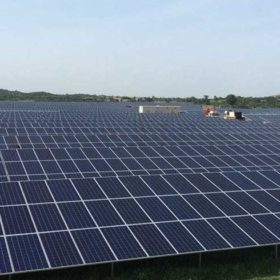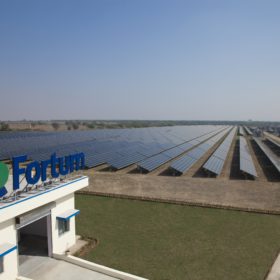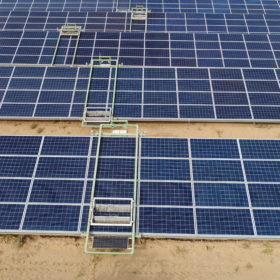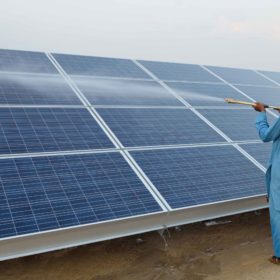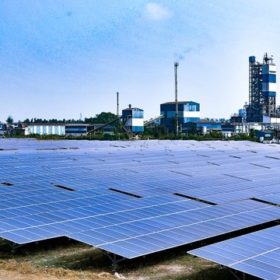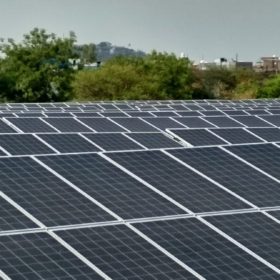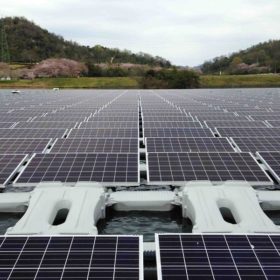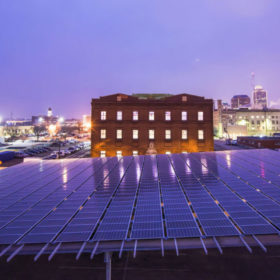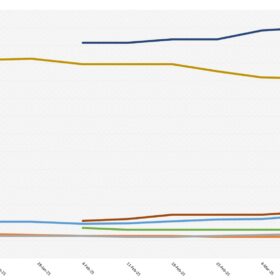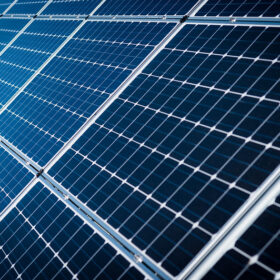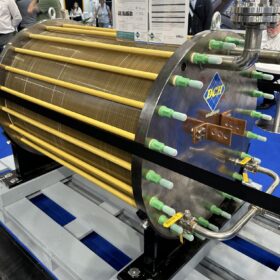Haryana tenders 57 MW grid-connected solar capacity
Haryana Power Generation Corporation Limited has invited global bids for setting up of an aggregate ground-mounted solar capacity of 57 MW at three sites in the state. Of the total capacity, 30 MW shall come up in Faridabad, and plants of 15 MW and 12 MW at two separate sites in Yamuna Nagar. Bidding closes on July 17.
NSEFI urges Karnataka to prevent solar curtailment
Citing huge losses to solar power developers, the lobby group has urged state-owned utility Karnataka Power Transmission Corporation Limited not to arbitrarily curtail generation from solar power projects that are in any case ‘must run.’
750 MW Rajasthan tender attracts low bids of Rs 2.5/kWh
The tariffs are slightly above Rs2.48/kWh seen in March procurement but still fairly below the levels hit in Maharashtra and Gujarat auctions recently—reaffirming the state’s attractiveness to PV developers.
56% solar installations in water-scarce areas: Bridge To India
Wasteful use of water for solar panel cleaning is posing these areas to a high level of water risk. To justify its environment-friendly tag, the industry needs to replace manual cleaning with technologies providing water-efficient solutions.
Essel in talks with Adani for solar assets sale
Following UK-based private equity investor Actis dropping the purchase plan, debt-laden Essel Infraprojects is reportedly negotiating the deal with Adani Group for Rs 1,800-2,000 crore.
EESL tenders 100 MW solar in 3 states, plans 200 MW rooftop in Maharashtra
India’s Energy Efficiency Services Ltd (EESL) has invited bids from domestic and international players for setting up of small grid-interactive solar plants ranging from 500 KW to 2 MW at lands of state-owned utilities. The cumulative capacity, to be installed in turnkey mode, is 40 MW for Maharashtra and Andhra Pradesh each and 20 MW for Jharkhand. The state-run energy service company is also mulling to install an aggregate 200 MW of grid-connected solar rooftop across 5,000 state-owned buildings in Maharashtra.
Another bidding extension for IGL’s solar-plus-battery tender
Bidders can now lodge their interest until July 1 and are required to submit any amendments, signed and stamped, along with the bid.
BHEL wins Rs 800 crore EPC orders for 200 MW solar power plants
The state-owned engineering major will set up a floating solar plant at NTPC Ramagundam in Telangana and a ground-mounted plant at Raghanesda Ultra Mega Solar Park in Gujarat, with a capacity of 100 MW each.
Uttarakhand floats global tender for 40 MW grid connected solar projects
The Irrigation Department of Uttarakhand, in Dehradun, has re-tendered a 27 MW solar project at the Haripura Dam and a 13 MW installation at the Tumariya Dam in the Udham Singh Nagar district. The project will now be awarded through tariff-based competitive bidding.
Removal of priority-sector lending cap – solar industry reaction
The power minister’s proposal would be a step in the right direction towards meeting the 40 GW rooftop solar target, as it removes a financing hurdle for small and medium enterprises.

